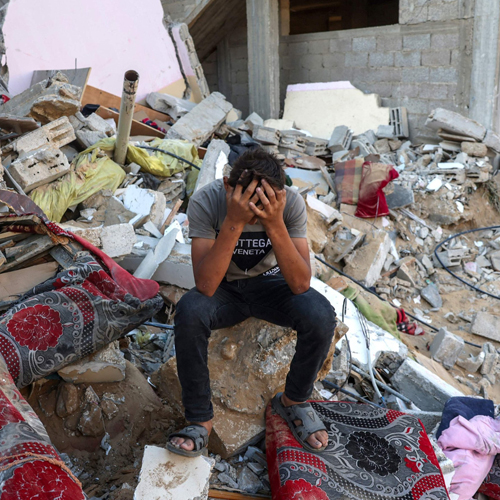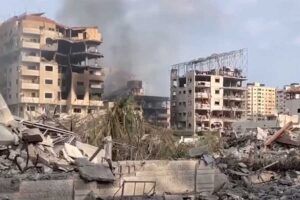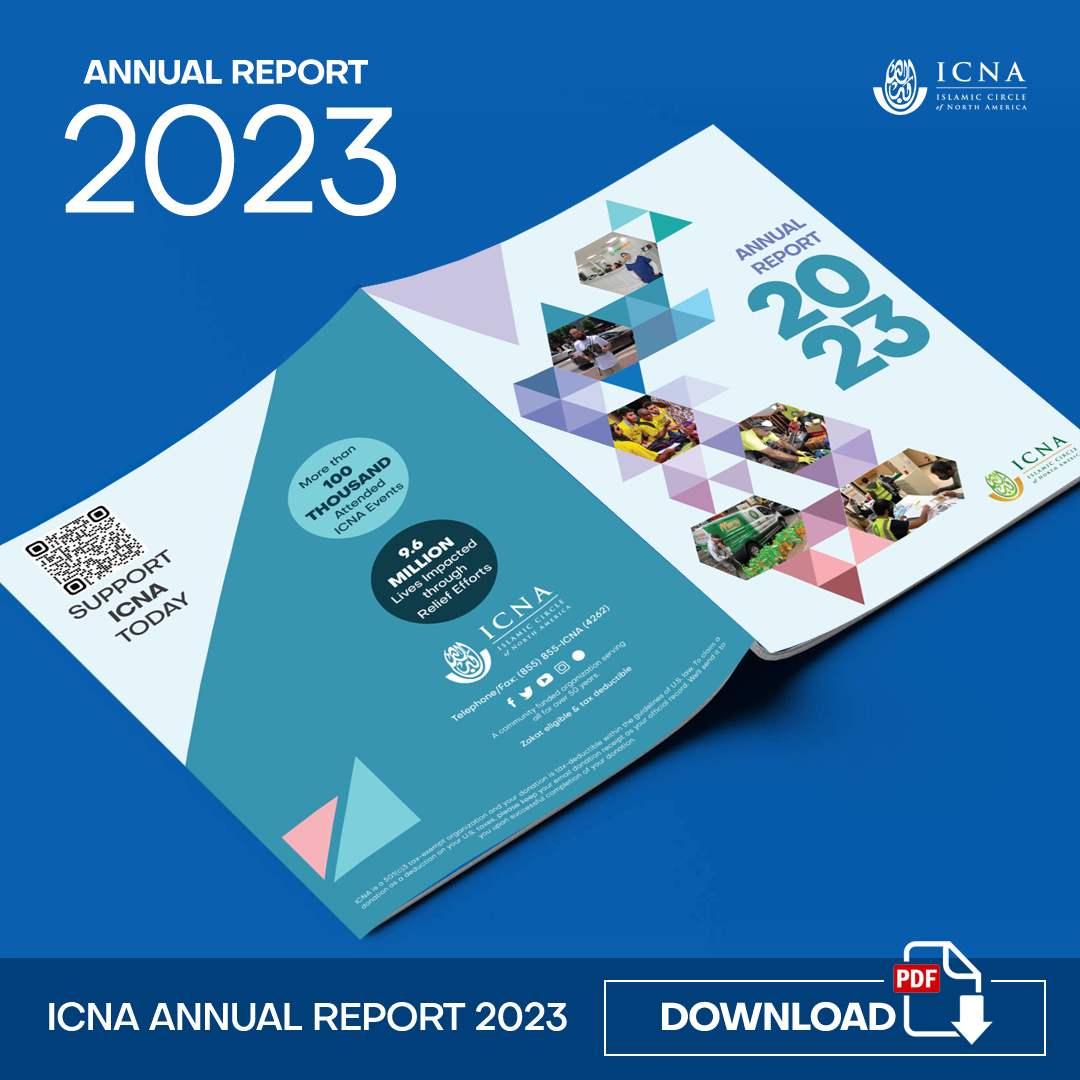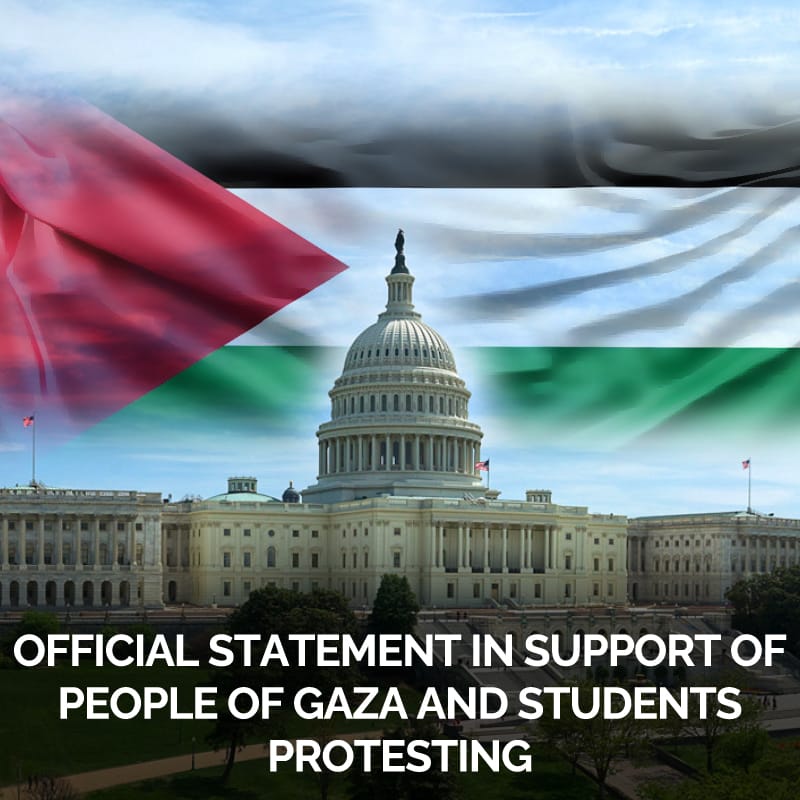

“Where is God’s help,” Muslims ask. In Palestine and around the world, in times of mild, moderate, or extremely severe injustice, the question comes up. We believe fully in the promises of Allah, that He is the wisest of the wise, the Most Merciful, the All-Seeing, and that He is just. We believe that He responds to the prayers of the righteous and the oppressed. Thus, how do we reconcile our understanding of those promises with the extended suffering experienced by individuals or groups of people in the world, such as in Gaza today?
First, we begin with foundations. Who is Allah? Allah is the one and only God, Creator and Sustainer of the created world. He is perfect. He has no flaws. When we say Allah is the All-Wise, it means that His wisdom places everything in the right place, right time, and in the right way, sometimes for some reason or wisdom that we cannot know, see, or comprehend with our limited minds. If we were to comprehend them, we would be at the level of the Divine, but we are limited human beings. Allah is perfect, so if He tells us there is no injustice from the Creator to the creation, then we believe in what He says without any doubt whatsoever. We do not question Him, and we do not question Divine destiny, but we may wonder at times about the suffering that we experience or see others experiencing.
Second, Allah has informed us about the reality of this world. So, when we wonder about the suffering, we remember that this is the life of trials, sometimes easy and sometimes difficult. What follows is that this life is an opportunity to practice patience and perseverance, an opportunity to do good. And we are to remember that this life is short and fleeting. The afterlife is eternal, the life of consequences, of reward or punishment, and the opportunity for rights to be truly restored in the court of Allah.
Allah is aware of the good-doers and promises that an eternal life of bliss will be worth whatever has befallen them in this world, where those in Paradise will have whatever they desire (see Qur’an 50:35). These are the people who express gratitude to Allah for guidance, protection against ongoing difficulties, and the fulfilment of His promise of paradise. The evildoers, the oppressors, those who violate the rights of God and creation, will face accountability as Allah The Just sees fit. He is more just, wise, and merciful than we can imagine, and we are not in a position to question His authoritative decisions. If we establish this fact and believe in it, and are constantly reminded of it, it helps us to frame this life’s trials through that lens. Some people are good, and some are evil, and Allah is aware and will compensate both. The final verse revealed to humankind summarizes this reality perfectly: “Be mindful of the Day when you will be returned to Allah, then every soul will be paid in full for what it has done, and none will be wronged” (Qur’an 2:281).
Third, Allah has informed us of His promises and that His promises are true (see Qur’an 35:5). He has informed us about the acceptance of the prayer of the oppressed, the righteous, the one who sincerely calls upon Him, and that not only are His promises true, but also that He is nearby (see Qur’an 2:186). Someone may wonder, then, where is Allah’s response to the du’a of the people of Palestine? The answer to that is found in the narration where Prophet Muhammad said to those with him: “There is no Muslim who calls upon Allah, without sin or cutting family ties, but that Allah will give him one of three answers: He will quickly fulfill his supplication; He will store it for him in the Hereafter; or He will divert an evil from him similar to it.” They said, “In that case we will ask for more [in du’a].” The Prophet said, “Allah has even more” (Musnad Ahmad). While du’a is answered in different forms, the one calling upon Allah is always rewarded for every single sincere du’a, and no du’a goes unanswered.
Furthermore, one cannot ignore Allah all year and then make du’a and expect, even demand, it be fulfilled immediately on their terms, giving up if it’s not manifesting the way they requested. Du’a, as we are taught in Islam, is a means of communication and relationship between the Master and the servant, the Creator and the created being. It is an ongoing relationship, whether in times of ease or difficulty, whether to cry out in desperate need or to express gratitude, amplified if the believer is consistently pious all year. Making du’a shows that the believer recognizes how much we are in need of Allah, regardless of how much one has been blessed with worldly things, or not. The truth is that we are always in need of Allah, not just during calamities. Additionally, one does not know which form the du’a is being accepted in, but one must persevere and not be hasty, for Allah’s promise is always true.
Fourth, we learn from stories of the most righteous humans, the prophets and messengers. We learn that Allah could instantly change a person’s situation but sometimes tests the believer for various reasons in His unlimited wisdom. If anyone “deserved” instantaneous relief from oppressors and the fulfillment of their requests, it would be the prophets who went through severe pain for years, sometimes decades, with patience and sincere dedication. This is a lesson we learn historically and, also, we see today in the resilience of the righteous Muslims in Gaza. Their faith is tested, their sins are purified, their rank in paradise is raised, their du’a is elevated, their resilience is strengthened, their eman is manifest, their shahaadah (martyrdom) is eternal bliss. Their worldly loss leads to increased gratitude and trust in Allah, and their firmness is inspiration for other Muslims. Without doubt, their pain is unequivocally recorded and will ultimately be ameliorated and rewarded by Allah SWT.
Allah informs us of so many people historically who went through suffering, and yet persevered, in order for us to learn lessons from their resilience and promised reward. Some of them won battles when they were attacked by others, and the victory given to them in this world is a type of worldly success. But many of them did not live to experience relief or victory. Some were martyred in battles like Badr and Uhud. Their success was in holding on to their faith and enduring difficulty with patience and dedicated convictions about Allah, His wisdom, His justice, His promises. Leaving this world in a good spiritual state is the true success, when the believer enters the realm of eternal bliss and reward.
 None of us chooses the tests that come our way. The tests are sometimes hard and sometimes almost inconceivably difficult. Palestinians did not choose the test of being occupied. But we believe with full conviction that Allah will never burden us with a test we cannot handle and will reward each of us based on the personal tests we encounter. We do not know what tests may come our way in this life. But we are only accountable for our reactions and decisions relative to those tests. Whoever surrenders to Allah SWT, is patient, inculcates goodness in himself and enjoins it in the world, and stands firm in justice — Allah does not fail to reward him or her.
None of us chooses the tests that come our way. The tests are sometimes hard and sometimes almost inconceivably difficult. Palestinians did not choose the test of being occupied. But we believe with full conviction that Allah will never burden us with a test we cannot handle and will reward each of us based on the personal tests we encounter. We do not know what tests may come our way in this life. But we are only accountable for our reactions and decisions relative to those tests. Whoever surrenders to Allah SWT, is patient, inculcates goodness in himself and enjoins it in the world, and stands firm in justice — Allah does not fail to reward him or her.
We are required to persevere against injustice in all forms, to free others from oppression, and to stand firm for justice consistently, regardless of the religion, ethnicity, or background of the one being oppressed. If we are the ones enduring injustice, we are commanded to persevere, spread optimism, be strong, avoid faltering and becoming weak of heart. We are to turn to Allah in prayer and du’a, until the last breath of life. The meeting with Allah is near, so we cannot let this world distract us from why we are here; we cannot let this transitory world obscure what awaits us in the next life, the life of eternity.
To answer the question posed — Where is God’s help? Allah says: “Do you think you will be admitted into Paradise without being tested like those before you? They were afflicted with suffering and adversity and were so shaken that the Messenger and the believers with him cried out, ‘When will Allah’s help come?’ Indeed, Allah’s help is near” (Qur’an 2:214). Allah’s help is near.
May Allah grant justice and relief to our brothers and sisters in Palestine and all around the world. May He use us as a means of facilitating justice for them and for all oppressed people, wherever they are.





